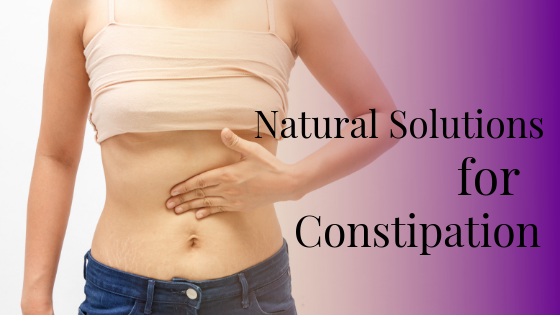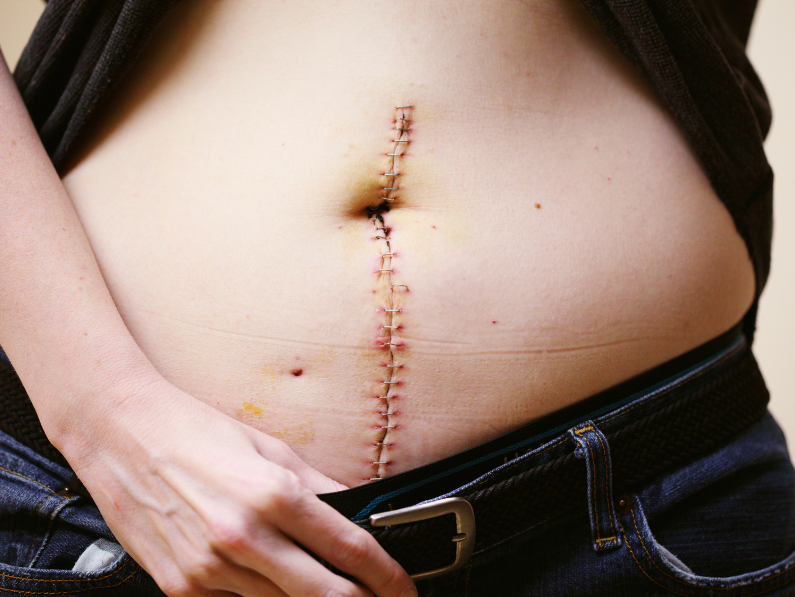Constipation is an uncomfortable and embarrassing symptom many endometriosis sufferers deal with. As a matter of fact, it may be an issue that you’re currently struggling with. In addition to your typical endo symptoms (pelvic pain, painful periods, low back pain and nerve pain); experiencing digestive complications is an often overlooked side effect. There are many cases in which endometriosis is misdiagnosed and confused with irritable bowel syndrome because of the similarities the two conditions share concerning symptoms. Yet, the cause of digestive distress for endometriosis sufferers is linked to the inflammatory nature of the condition as well as endometrial growths being present on the bowels. When it comes to easing constipation and getting relief making changes to your diet and lifestyle can prove beneficial.
Page Contents
Decreasing Constipation with Dietary Changes
Switching up your diet can benefit your digestive health for two main reasons. The first being that removing trigger foods can prevent flare-ups and improve digestion. If you are consuming foods that trigger constipation then pulling those foods from your diet will ease bowel movements. Secondly, increasing fiber intake and supplementing with probiotics increases regularity. Consuming fiber-rich foods, and increasing probiotic-rich foods can get things moving in the digestive tract.
Keeping a food journal will help you identify trigger foods and areas for improvement. This can help guide you when learning what foods to decrease and what foods you should increase or supplement into your diet. You should aim to track your food for 3-6 months to gain knowledge regarding what works and doesn’t work for your digestive health.
Foods to Decrease
Once you know what trigger foods lead to constipation and digestive distress you can start removing them from your diet. In general, there are certain foods that are known to not be gut-friendly and contribute to bowel distress. Look out for these foods and decrease consumption when you can.
- Refined foods (white bread, white rice, pasta)
- Processed Snacks (cakes, cookies, chips, boxed treats)
- Carbonated beverages (soft drinks)
- Coffee
- Alcohol
- Juices

Foods to Increase
As you decrease problematic foods you can switch to boosting your consumption of gut beneficial foods. These foods will help promote regularity, make stools easier to pass and improve gut health. Stock up on these foods and make them staples in your daily diet.
- Whole Grains (whole wheat, brown rice, quinoa)
- Fruits & Vegetables
- Beans & Legumes (black beans, chickpeas, lentils)
- Fermented foods (kimchi, sauerkraut, kombucha, yogurt)
- Water

Additionally, you do want to be mindful and increase the amount of fiber you consume slowly. Increasing fiber intake too quickly can result in abdominal bloating and gassiness. Also, if you find that you are experiencing bloating or gassiness cut back on the insoluble fiber (wheat, brown rice, and grains) it could be that you’re sensitive to it. Instead focus on increasing soluble fiber intake (apples, lentils, citrus fruit, berries). You should continue tracking foods and symptoms to see how your body reacts and what’s working for you.
Decreasing Constipation with Lifestyle Changes
In addition to making improvements to your nutrition, you should seek to upgrade your wellness habits. Simple healthy habits to create include increasing physical activity, stress management, and supplementation. Becoming more physically active can influence your bowels positively and help get things moving. Therefore, increasing bowel regularity and helping to make stools easier to pass. Getting an adequate amount of exercise is also great for stress management. Other beneficial stress management techniques include practicing breathing techniques, and mindfulness activities.
Lastly, supplementing with a probiotic can help to ensure that you are supporting a healthy gut microbiome. This is important for your immune health and bowel regularity. Choosing a multi-strain probiotic with a minimum of 20 billion IU’s is a good place to start. You can always adjust as needed.
In addition to the above lifestyle changes, you may also find it helpful to create a “poop schedule”. Training your body to use the restroom at regular intervals throughout the day can help with improving regularity. For instance, try drinking a full glass of lemon water first thing in the morning and going to the bathroom 20-30 minutes afterward. You may find this helps kickstart your digestive system and helps you have a bowel movement. Experiment and see what works best for you when creating your poop schedule. There may be other triggers that promote a bowel movement for you.
About the Author.
 Hi, my name is Kathleen but you can call me Kat. I am an Esthetician, Lifestyle Wellness Coach, Content Creator, and Writer. My intention is to provide you with education and awareness about women’s health, nutrition, fitness, beauty, wellness, and lifestyle. I primarily help women that are seeking holistic and natural solutions to managing their chronic condition, improving their lifestyle and combating anti-aging concerns. I offer coaching programs and courses that are designed to help you redefine your health and defy aging. You can find my content on a variety of social media platforms such as YouTube, Facebook, and Instagram. If you take the opportunity to visit me on my other platforms don’t hesitate to leave a message, I would love to hear from you!
Hi, my name is Kathleen but you can call me Kat. I am an Esthetician, Lifestyle Wellness Coach, Content Creator, and Writer. My intention is to provide you with education and awareness about women’s health, nutrition, fitness, beauty, wellness, and lifestyle. I primarily help women that are seeking holistic and natural solutions to managing their chronic condition, improving their lifestyle and combating anti-aging concerns. I offer coaching programs and courses that are designed to help you redefine your health and defy aging. You can find my content on a variety of social media platforms such as YouTube, Facebook, and Instagram. If you take the opportunity to visit me on my other platforms don’t hesitate to leave a message, I would love to hear from you!






